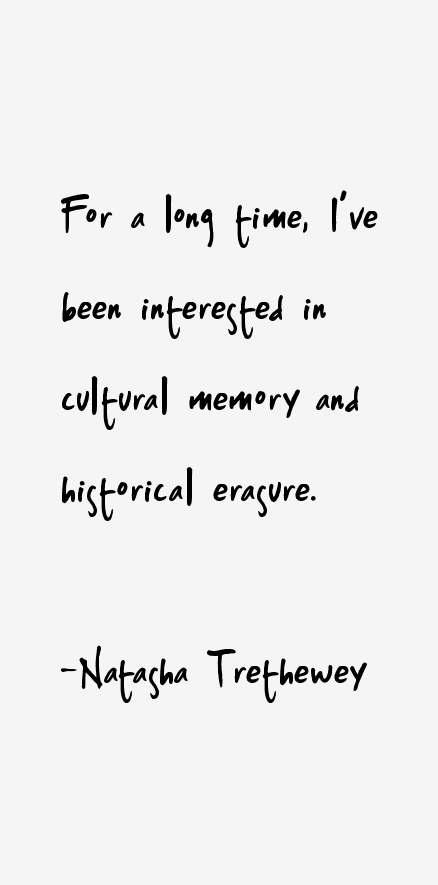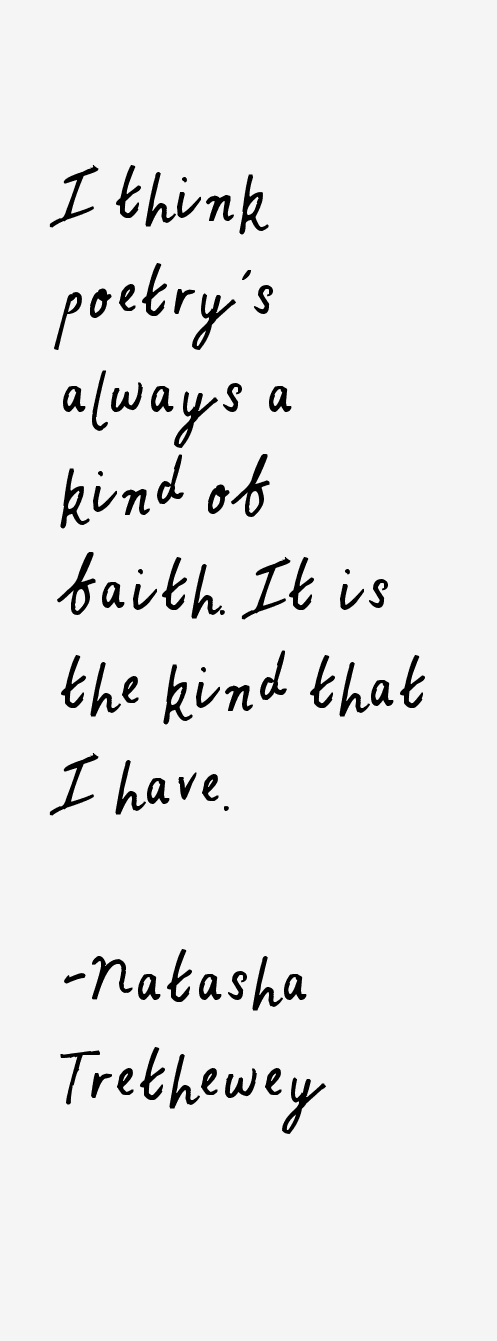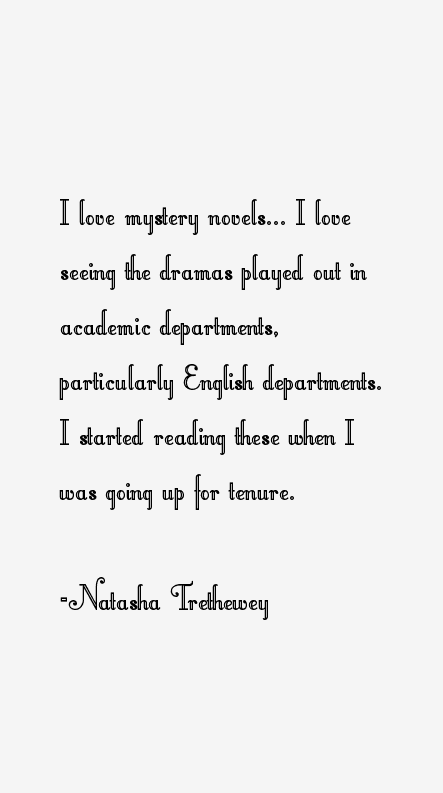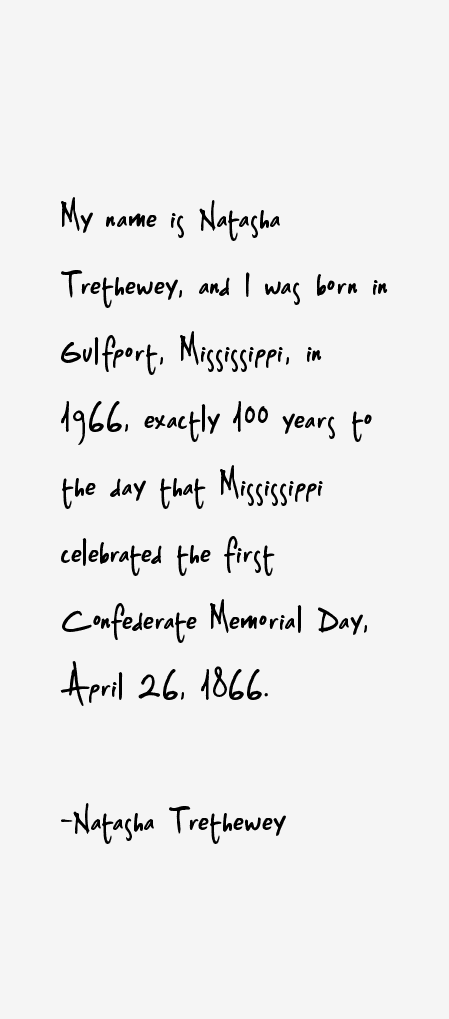Natasha Trethewey Quotes & Sayings (Page 2)
Natasha Trethewey quotes and sayings page 2 (poet). Here's quote # 11 through 20 out of the 63 we have.
“It's so necessary to try and record the cultural memory of people. To set it down for generations to come. To better understand where we are headed. The problem is, a good portion of what we choose to remember is about willed forgetting. Which we all do, I believe, to protect ourselves from what is too difficult.”

“I am interested in 18th century natural philosophy, science, particularly botany, the study of hybridity in plants and animals, which, of course, then allows me to consider the hybridity of language.”

“People always want to be on the right side of history; it is a lot easier to say, 'What an atrocity that was' then it is to say, 'What an atrocity this is.'”
“My mother was murdered by my step-father, my brother's father, who was also named Joel, twenty-five years ago. Whatever sadness or burden I've been living with since then, my brother's also been living with, but he's lived with the added burden of having the exact same name as our mother's murderer.”

“For a long time, I've been interested in cultural memory and historical erasure.”

“I think poetry's always a kind of faith. It is the kind that I have.”

“Writers, particularly poets, always feel exiled in some way - people who don't exactly feel at home, so they try to find a home in language.”

“I love mystery novels... I love seeing the dramas played out in academic departments, particularly English departments. I started reading these when I was going up for tenure.”
“I've been telling my students, 'Imitate, imitate.' And they say, 'Well, what if I plagiarize, or what if I'm not original? I want to be myself.' And I always tell them, 'Your self will shine through'... If you allow yourself to feel deeply and honestly, what you say won't be like anyone else.”

“My name is Natasha Trethewey, and I was born in Gulfport, Mississippi, in 1966, exactly 100 years to the day that Mississippi celebrated the first Confederate Memorial Day, April 26, 1866.”
Natasha Trethewey Quotes Rating
No Ratings Yet
Leave A Comment
























